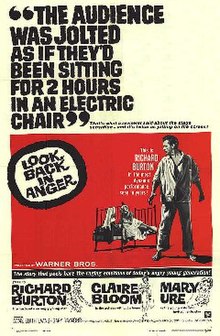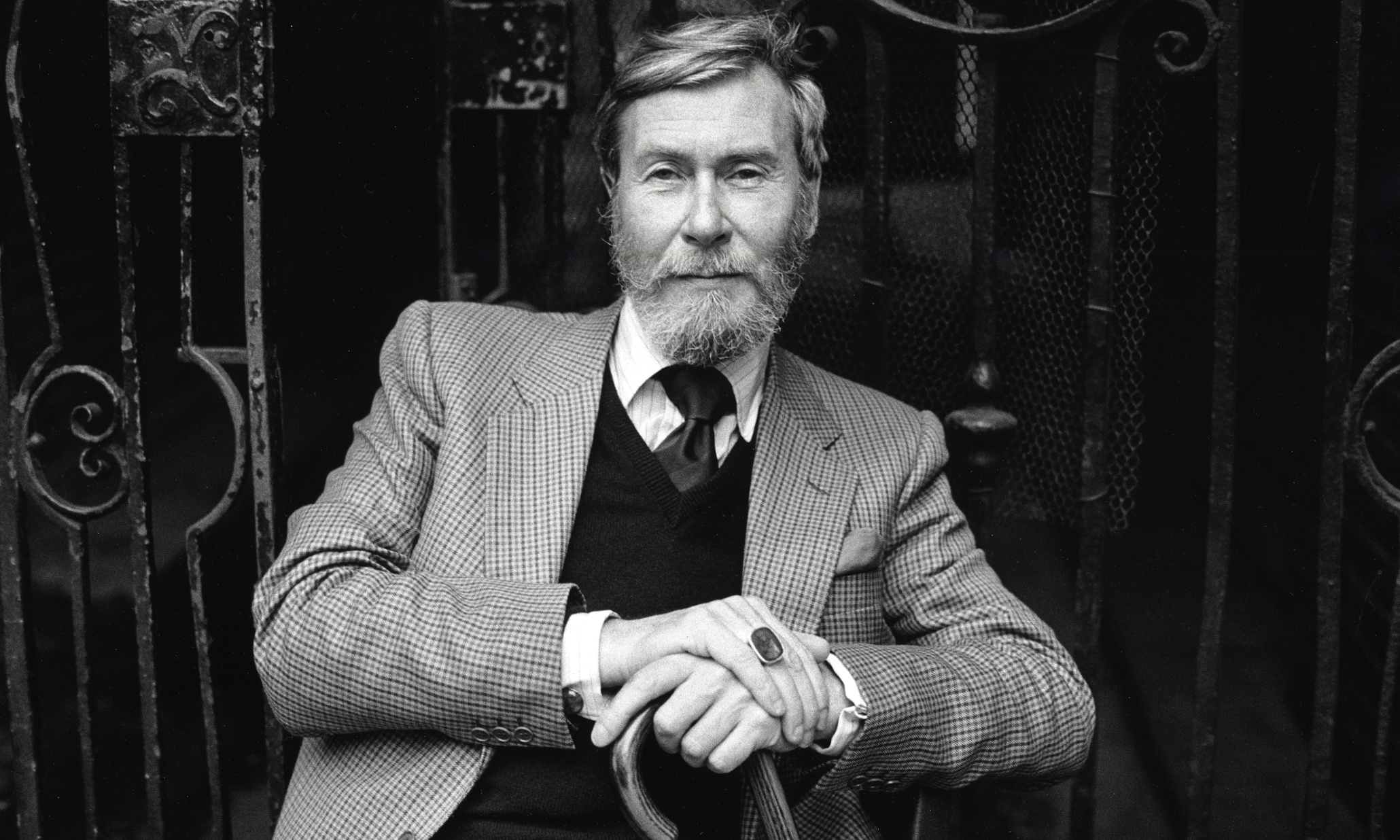Before John Osborne, the theater was characterized by being
“escapist” which focused on light comedy, more coward, less
honest but with the development of John Osborne work, it was born the
“Theater of Anger”.
It is significant to contextualize the age in
which “The Angry Theater” emerged which belongs to 1950s, a
decade that was characterized by the eradication of certain
assumptions of the Victorian Age, the decline of religious believes,
the materialism of the society and the development of a Post war
mind.
That was how the Post war drama was taking place
and the arising of “The Angry Young men”
movement (taken from the title of Leslie Allen Paul's autobiography)
composed by English writers of the 1950's who belong to lower middle
class or the working class families whose work was labeled as social
protest. They feel and labeled as heroes because of their rebellious
and critical attitudes towards the English society.
The authors of this
movement were the voice of the young generation who was discontent
and tired of being and feeling abused for elites and complaining
about their limited possibilities and
dissatisfied of what the old generations led the world to. Therefore,
their objective was to create a new way of living.
The
Angry theater is characterized by use of realistic setting, logical
plot and easy to follow, the focus on a working-class hero and a huge
criticism of values and
even the language changed to be revolutionary and violent.
Look
back in Anger
written by John Osborne fits the features of this kind of theater,
especially because of the main character, Jimmy Porter, an
angry young man, who is clever and an educated man from a working
class.
Jimmy Porter is a 25 year-old man with a college education and
from lower-middle class, represents the frustrated generation of
1950s, married Alison an upper-middle class womanfrom
a Victorian family.
In
addition, the similarity between Osborne's
life and Jimmy Porter can be reflected in the play because of the
class, the opportunities that they have had in life and the post war
mind, but also, the consistent and often sarcastic criticism of the
British life.
We
can realize that those Victorian attitudes
were the focus to attack from Jimmy who was always insulting her with
strong sentences and showing his rebellious attitude to her when he
used to call her “Lady Pusillanimous” only
because she did not express angry as he used to do and she seemed to
be uninterested, he tells her that she is incapable to think. Because
of that, we can think that Jimmy hates his wife because of the way he
treats her. He even said
to her that he wishes that she could have a child and then it will
die just because he wondered a recognizable human and being herself.

But
also, Jimmy shows lack of interest when Alison leaves the home to go
to her parents' house. He doesn't show being in love with her, he
does not even care about it considering Helena replaces Alison in the
third act by doing the same she used to do, iron his shirts and being
there for his necessities. Therefore, he does not care about who has
that role, only having someone who can do that. In that way, it
produces a cycle.
Also,
the characters of this movement are characterized by a class in
conflict of their lives, no fitting in the way they live and also not
being accepted by the upper middle classes which is the case of Jimmy
considering his wife's family was discontent of the fact that Jimmy
and Alison married and they did not accept him.
We
can conclude this with Jimmy
was angry and frustrated with the past which was the old generation
(Burgeous class) because they were always complaining about the
difference of classes.
He is presented as a hero but I think is presented at the same time
as anti-hero
since
he complains all the time but he does not do anything about it, only
showing the fact he is not happy with his life. We can see him
through the play only trying to destroy the relationship with his
wife and showing the pain of being alive.
 But
at the same time, he can be seen as hero since you wonder if you are
living the life that you really want, or you are just used to it and
whether you are doing what you really want to do. He makes the reader
to think about themselves and questioning of the real “happiness”
and what it means.
But
at the same time, he can be seen as hero since you wonder if you are
living the life that you really want, or you are just used to it and
whether you are doing what you really want to do. He makes the reader
to think about themselves and questioning of the real “happiness”
and what it means.
Look
back in anger is
a play which represents the “Angry theater” in 1950s which wanted
to transmit a more honest and realistic theater and the discontent
from the people. This theater was not afraid of telling how the
authors characters felt about the world. It related to working class
which makes it to be more realistic. The theme is the social critic
against the middle class values.



No hay comentarios:
Publicar un comentario